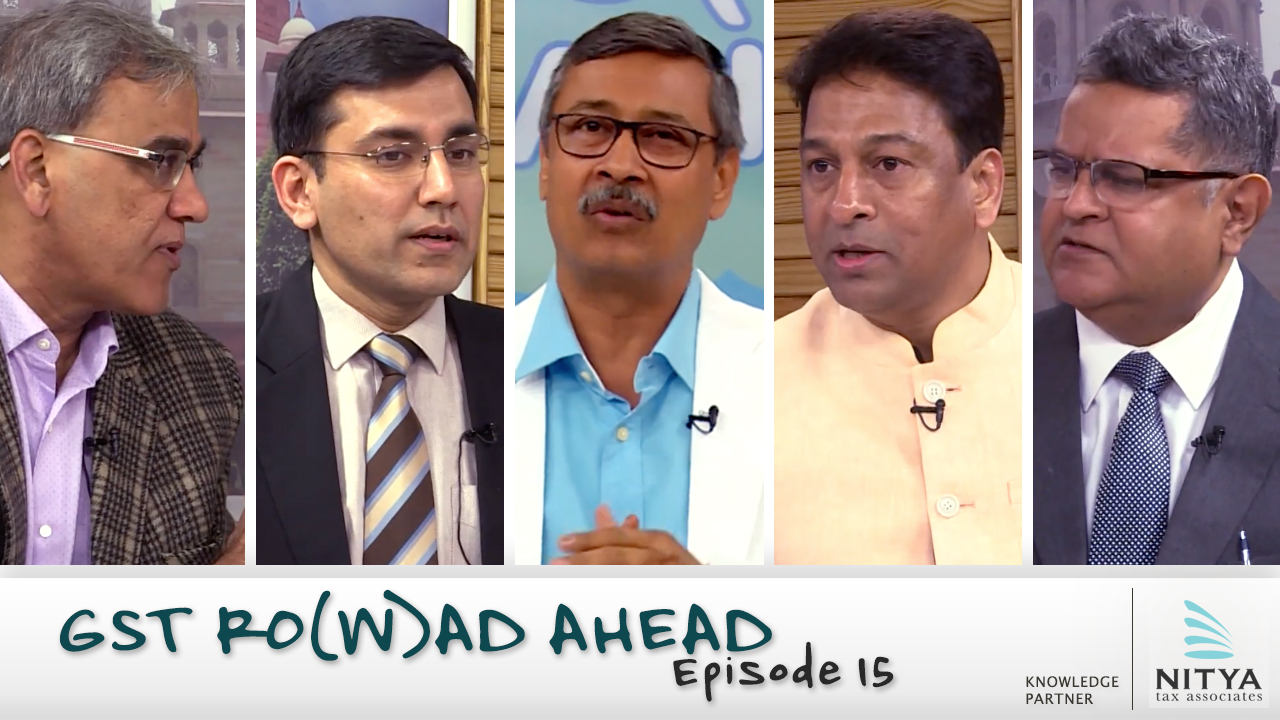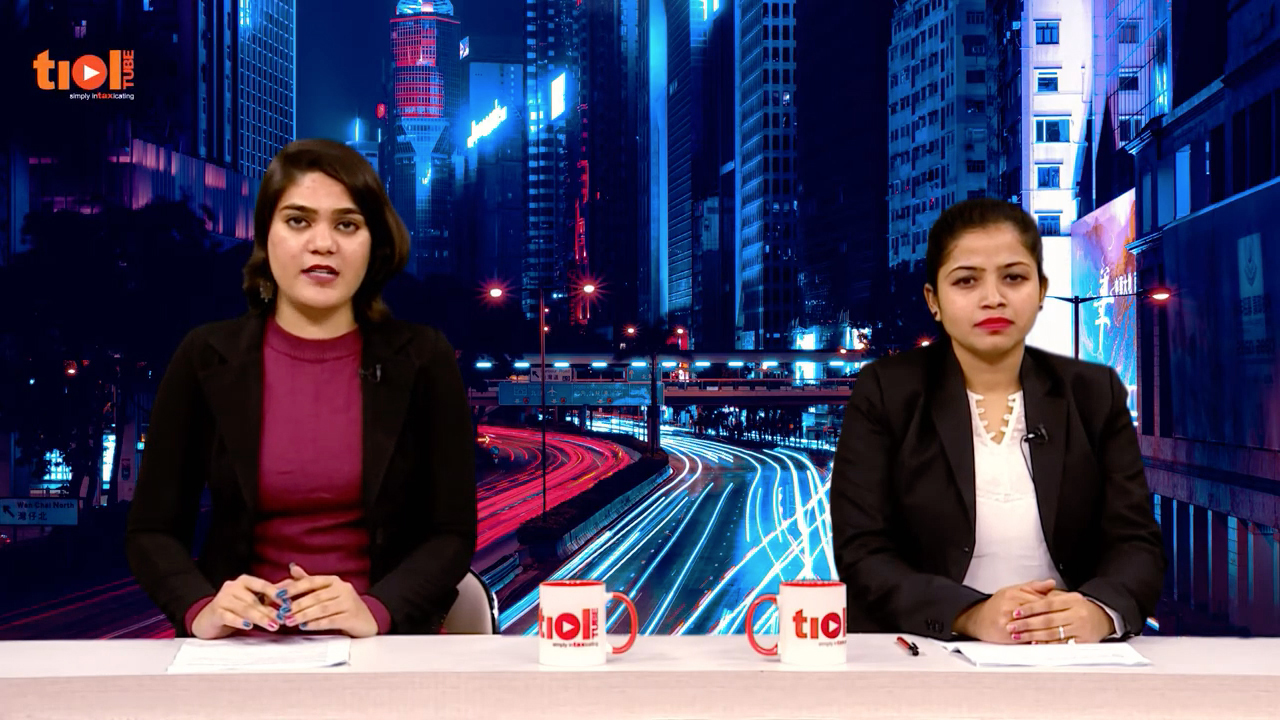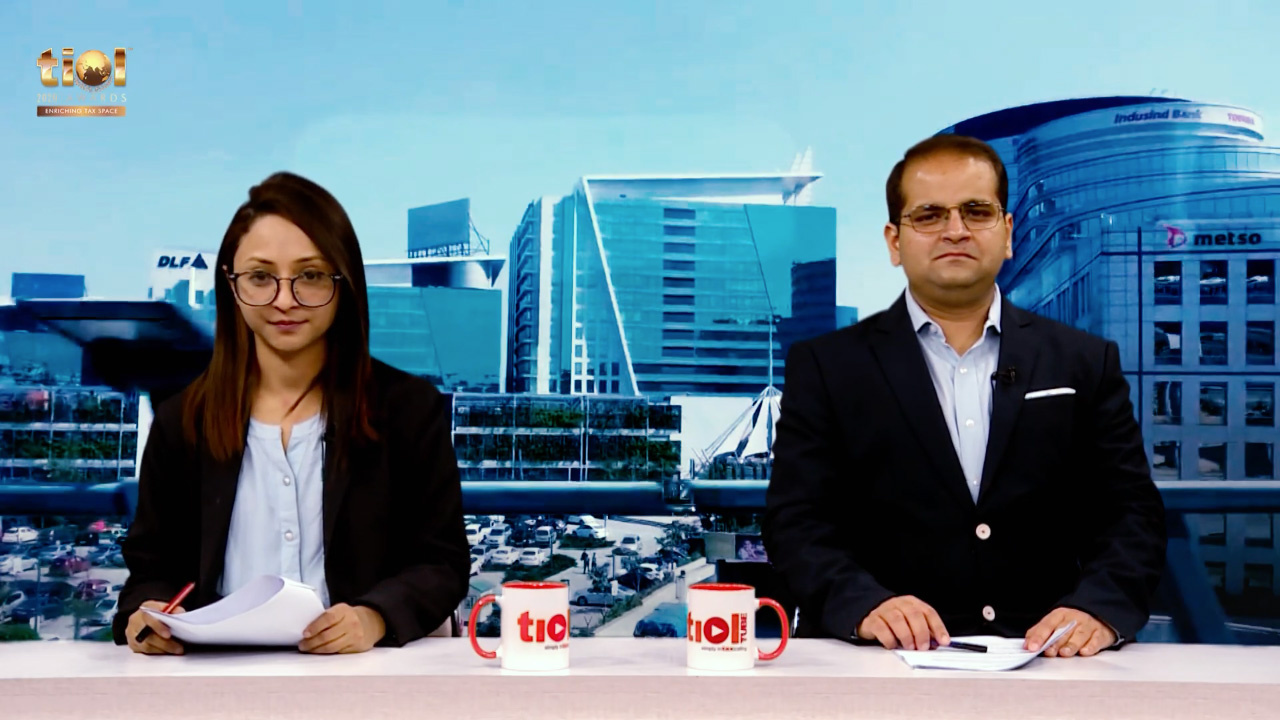|
SERVICE TAX
ST - Supply of Tangible Goods service - The assessee supplies natural gas through pipes to the Industrial, Commercial or Domestic customers and for this purpose installs an equipment called 'SKID' at the customer's site to regulate the supply of natural gas supplied through pipes and to record the quantity consumed by customers for the purpose of billing - The gas pipeline from the nearest distribution point is laid and maintained by assessee at the cost of customer and the measuring equipment is also supplied, installed and maintained by assessee at the cost of customer - CESTAT observed that the terms of agreement leave no manner of doubt that the purpose of equipment is to measure the amount of gas supplied to the customer for the purpose of billing; that they are, therefore, for the use of assessee and are not for use by the customers and hence the finding to the contrary recorded by Adjudicating Authority is not correct - accordingly, the impugned orders confirming the demand of Service Tax were set aside - Revenue has filed an appeal before the Supreme Court.
Held: Delay condoned - Civil Appeal is listed for hearing and final disposal on 21 st July 2020: Supreme Court
- Matter listed :SUPREME COURT OF INDIA
2020-TIOL-828-CESTAT-BANG
Sukumaran Kondedan Vs CC, CE & ST
ST - The appeal is directed against the impugned order whereby the Commissioner has imposed a redemption fine of Rs. 21,00,000/- under Section 125 of Customs Act and also imposed penalty of Rs. 2,10,000/- on the assessee under Section 112(a) of Customs Act, 1962 - The assessee has only challenged the imposition of redemption fine of Rs. 21,00,000/- on the ground that the same is excessive - Originally when the gold was seized, it was valued at Rs. 30,20,000/- but in the De novo proceedings, the Commissioner has increased the value of the seized gold to Rs. 83,92,868/- and accordingly has imposed a fine of Rs. 21,00,000/- for redeeming the same under Section 125 which is not legally sustainable - Further, the imposition of fine of Rs. 21,00,000/- is on the higher side which is reduced to Rs. 7,50,000/- - As far as imposition of penalty of Rs. 2,10,000/- on the assessee under Section 112(a) of the Customs Act, 1962 is concerned, in the first round of litigation, the Commissioner has imposed penalty of Rs. 1,00,000/- which was not challenged by assessee and the same has become final and therefore in the De novo proceedings, imposition of penalty of Rs. 2,10,000/- is not sustainable in law and therefore same is set aside: CESTAT
-
Appeal partly allowed:
BANGALORE
CESTAT
CENTRAL EXCISE
2020-TIOL-827-CESTAT-DEL
Shivani Detergent Pvt Ltd Vs CCE, C & ST
CX - The assessee is engaged in manufacture of detergent powder and detergent cakes and are also taking cenvat credit of duty paid on inputs used in manufacture of said final products - Department observed that they have not included the amounts received as "other income" in the assessable value and are not only manufacturing dutiable goods, but also the exempted goods - However, have not maintained the separate records in respect of inputs used in manufacture of the said dutiable and exempted goods - The issue involved is no more res integra, as it stands decided by Apex Court in case of Hindustan Zinc Ltd. 2014-TIOL-55-SC-CX and also in the case of Gas Authority of India Ltd. 2007-TIOL-250-SC-CX , wherein the Apex Court has distinguished between the final products and the by-products - After examining in detail the manufacturing process in both these cases, the Apex Court has clarified that rigor of Rule 6 is applicable only in the case of two final products being manufactured by the assessee and not in the case of one final product and another waste product or the by-product being produced - It was clarified that so long as Sulfuric Acid in the former case and lean gas in the later case are obtained as by-product and not as final product Rule 57 CC / Rule 6 C of CCR, 2004 will not be applicable - Despite the issue being clearly and properly adjudicated and clarified time and again with respect to the by-products/ waste products emerging during the process of manufacture of final product, the confirmation of demand in such cases still under Rule 6 of CCR is opined to be an act of judicial indiscipline on the part of adjudicating authorities - The orders under challenge are hereby set aside: CESTAT
-
Appeals allowed:
DELHI
CESTAT
2020-TIOL-826-CESTAT-DEL
Shree Rajasthan Syntex Ltd Vs CCE & CGST
CX - The assessee is engaged in manufacture of yarn and waste of man-made fibre - Both the assessee and its sister unit were availing benefit of sales tax incentive scheme - They were claiming deduction of entire amount of sales tax payable @ 2% under Section 4(4)(d)(ii) of CEA, 1944 w.e.f. 01.07.2000 - Section 4 of the Excise Act was amended and assessee deposited Rs. 7,36,000/- on sales tax availed w.e.f. 01.07.2000 and further deposited Rs. 65,349/- while debiting the same through their RG-23A entries - Further, the sister unit has also debited entry of Rs. 10,14,569/- in their RG23A register - Thereafter, certain proceedings going on between assessee and the respondent - Finally, on 31.10.2006, assessee filed seventeen rebate claims in respect of excise duty paid on raw materials used in manufacture of export goods as well as excise duty paid on finished goods exported by them - Finally, the rebate claimed on the finished goods exported was sanctioned - Against the rebate claim, the Adjudicating authority sought adjustment of interest payable by the assessee during the impugned period and the same was adjusted - When Commissioner (A) hold that while calculating the interest, could have been remanded the matter back to the adjudicating authority with open remand as assessee has challenged the issue of liability of interest itself before the adjudicating authority - In view of this, as held by Commissioner (A) the calculation of interest is in violation of the principles of natural justice - Accordingly, the matter is remanded back to the adjudicating authority to find out whether the appellant is liable to interest or not, thereafter, how much the interest is payable, if any: CESTAT
-
Appeals disposed of:
DELHI CESTAT
CUSTOMS
Cus - The issue involved is as to whether the royalty charges and franchisee fees paid to foreign supplier are liable to be included in assessable value of imported goods for purpose of payment of Customs duty under Rule 10(1) and Rule 10(1)(e) of Customs Valuation Rules, 2007 - It is on record that earlier SCN has been issued to assessee on the similar set of facts and circumstances and in respect of same agreement and said letters - The case was adjudicated upon and the same was settled by an order of Settlement Commission - Tribunal observed that the above indicated the fact that the department was aware of the entire fact regarding non-inclusion of royalty/franchise fee in the assessable value for the purpose of payment of customs duty and in view thereof there cannot be any allegation of suppression of facts requiring invocation of extended period of limitation - The impugned order was, therefore, set aside and the appeal of the importer was allowed - Revenue is in appeal before the Supreme Court.
Held: Delay is condoned and appeal is admitted - Notice issued on the application for stay, returnable within three weeks: Supreme Court
- Notice issued :SUPREME COURT OF INDIA 2020-TIOL-825-CESTAT-DEL
K K International Vs Commissioner of CGST
Cus - The assessee-company claimed refund of SAD in terms of Notification No. 102/2007-Cus - However, the same was denied on grounds that the invoices showing sale of goods did not bear 'no credit of additional duty of Customs leviable under sub-section 5 of Section 3 of Customs Act shall be admissible' - The refund was also denied on grounds that the incidence of duty was passed on by the assessee - Hence the present appeal.
Held - It is settled position in law that non-declaration in the invoices as per para 2(b) of the notification indicating that no credit of additional duty is admissible to the customer is only a procedure required to be adopted - The purpose of the said declaration is that the buyer does not have undue Cenvat credit in case SAD has not been shown separately in the invoices - In this scenario, the Tribunal has allowed the refund of SAD - Regarding the other ground for rejection of refund, the assessee claimed that neither the SCN issued to it nor the O-i-O passed subsequently mentioned unjust enrichment as a grounds for rejecting the refund - In this regard it is seen that the subject O-i-O was passed beyond the scope of the SCN - Once there is no proposal in the SCN to deny refund claim on a particular ground which also does not stand considered by the original adjudicating authority, the consideration of the same by Commissioner (Appeals) amounts to travelling beyond the SCN - As the assessee produced CA's certificate stating that incidence of duty was not passed on, the refund merits being allowed on this ground alone: CESTAT
-
Assessee's appeal allowed:
DELHI
CESTAT |
|







